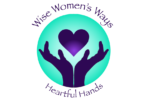Most medical practitioners using CAM after having had a shorter training in this life affirming specialized field than those who work exclusively under the banner of being a CAM practitioner.
With my acupuncturist’s hat on currently, I would go further and say that watching most attempts to validate through using the current model of ‘research’ in my field – that most acupuncture research protocols I (as a trainer and writer of under and post grad courses of over 30 years duration) see as likely to fail ‘treatments’.
They are written by academics not clinical practitioners.
The protocols can’t inspire good outcomes, either for the patients under research, or the research itself.
They do not address what a practitioner would – the individual is individual.
This being said for those trained supposedly in thinking holistically as a natural therapist would, how can an orthodox medical practitioner get their head around such a quantum shift in focus?
Prof Coulter spent some time in lectures on the differences between and the existence in all non conventional medical systems of a sense of wholeness.
This is at the heart I feel of the research dilemma when evidence is desired through the usual research methods. As most CAM practitioners know – people are individual and their own path to healing will always be unique.
That also of many people who have quietly just attended people at the other end – not the ‘sexy’ one that the oncologist embarks upon – of possible ‘cure’, but when it has not happened and the patient has no other orthodox route, or as they lay dying).
Perhaps now finally attending to their life – not their cancer. Undoing their trauma and toxins on all levels – so if they die – they die happy (as K’s story in the first week’s work).
With a ‘win’ with chemo/radiotherapy – the cancer is supposedly dead.
- What mess is the person in, whilst they put their life ‘on hold’, whilst they grappled with vast iatrogenic illness?
- Are they left in tatters also financially and emotionally?
- What now the role of the oncologist?
- Is this seen as a success?
- Why is it so necessary to attack and not support?
- What is cancer?
- Why is it there?
- Perhaps now is the time for CAM?
So how do oncologists research and what questions do they ask?
As an oncologist,
- I might have noticed many ask for help as a person – not to kill their cancer – but to live well and happy.
- I might have noticed many people when facing a cancer diagnosis want to take a more holistic approach to their recovery than conventional treatments offer.
- I may have the honesty to state that I have nothing to say in this debate as I have been trained to focus on the disease – not the person whose life created it.
By distressing all aspects of the person,
- I may begin to wonder if maybe I am contributing to their demise through not addressing why cancer is there at all. If I don’t do this – is it more likely to grow back?
- Is there more to cancer treatment than just getting rid of the tumour?
- Where to start looking?
- Perhaps where the patients do – on line. I may well find various sites that excite me –
As an oncologist, I may be thinking of what else could help besides the destroy mission that seems not to be working in so many patients.
http://www.curenaturalicancro.com/oncologists-criticize-chemotherapy.html
- What could I tell them when they assume I know about wellness and its creation and ask me way out of my scope of practice questions – like – ‘what can I do to help myself?’
As an oncologist, I don’t know. I was trained in disease attack, not prevention. I may realise that I don’t know what is happening out there – but some of my patients are having some really great responses – and unexpectedly so.
When asking them what they are doing, I may detect a great reticence, (as brought out in Crystal et al) and may have to come up with a different approach to be let into what is happening.
I may find that their life is less painful now – and on all levels a healing may be taking place.
Looking at the causation in the internet I find may toxins, and food and habits –
- so why was I not trained to at least direct people strongly to food and clean living?
- What am I doing to enhance their life quality – not just its length?
Sensible self care was not ever in my scope of practice. Maybe I look to CAM. They seem trained to deal with people – I am trained to deal with cancer.
Perhaps a sense of humility of a greater purpose may start appearing – where not one thing, but life and its quality as the outcome – not a drug or a technique to be bought and sold. We may all have pieces of the puzzle.
More research needed. Perhaps also with a holistic bent – as well as being a third party, and hopefully neutral. With the end result being defined as a quality life, whatever this means – in wellness.
References
- Chrystal, K., Allan, S., Forgeson, G., & Isaacs, R. (2003). The use of complementary/alternative medicine by cancer patients in a New Zealand regional cancer treatment centre. The New Zealand medical journal, 116(1168), U296. URL: http://www.ncbi.nlm.nih.gov/pubmed/12601420
- http://www.curenaturalicancro.com/therapy-simoncini-short.html
- http://kaabi.hubpages.com/hub/Hemp-Oil-Cancer-Cure
- http://www.curenaturalicancro.com/oncologists-criticize-chemotherapy.html
